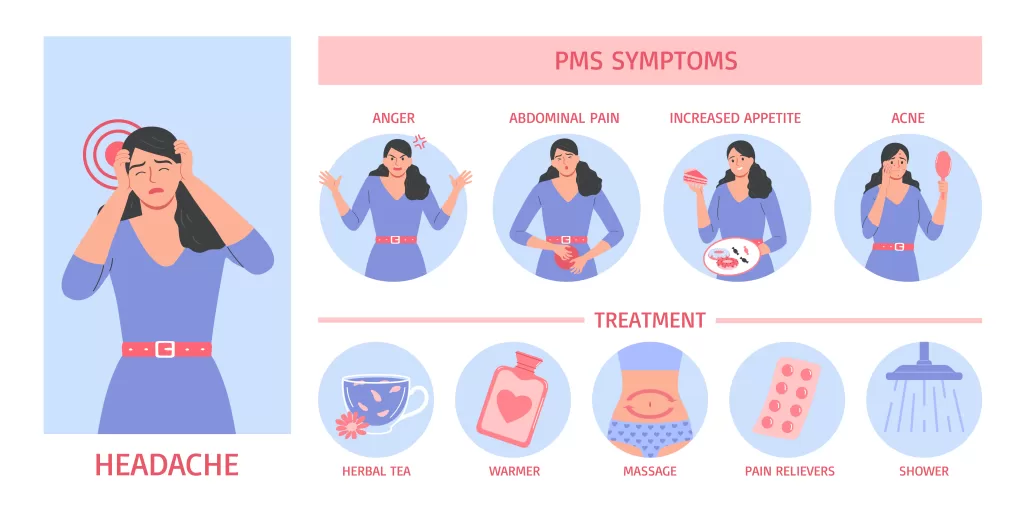Many women suffer from a complicated range of symptoms in the days preceding their menstrual cycle, known as premenstrual syndrome (PMS). Hormonal shifts, neurotransmitter alterations, and even lifestyle choices all play a role in its appearance, albeit its precise aetiology is yet unknown. Women’s health depends on knowing the signs of PMS and giving them delicate care during this time. This is especially important when it comes to handling intense emotions in social and professional contexts.
Symptoms of PMS:
Every woman experiences PMS differently, but mood swings, irritability, anxiety, bloating, exhaustion, and food cravings are frequent symptoms. The luteal phase of the menstrual cycle, which starts after ovulation and ends with the onset of menstruation, is when these symptoms usually appear. Severe PMS, also referred to as premenstrual dysphoric disorder (PMDD), can have a major negative influence on relationships and daily life, whereas minor symptoms are generally tolerable.

Gentle Care for Emotional Well-being:
Women should take gentle care of themselves and their support networks at this period. It can make all the difference in the world when lovers, family, and coworkers show empathy and understanding. It is crucial to recognise that these feelings are transitory and unrelated to any personal failings. Emotional distress can be lessened by promoting self-compassion and relaxation methods like deep breathing, meditation, or light exercise.
Alleviating Symptoms:
Modifications in lifestyle can help reduce PMS symptoms. Lean proteins, whole grains, fruits, and vegetables are all important components of a balanced diet that can help control blood sugar and lessen mood swings. Bloating and irritation can be reduced by limiting alcohol, coffee, and salty meals. In addition to lowering PMS symptoms, regular exercise, enough sleep, and stress-reduction methods like yoga or journaling help enhance general wellbeing.
Managing Emotions in the Workplace:
During PMS, controlling intense emotions at work might be very difficult. Nonetheless, a number of techniques can support preserving poise and efficiency. To start, communication is essential. Educating dependable coworkers or managers about PMS might contribute to a helpful atmosphere. It can also be helpful to take breaks when necessary, engage in mindfulness exercises, and look for a quiet place to spend some alone time.
Shifting perspective can also be facilitated by rephrasing negative ideas and concentrating on solutions rather than issues. Putting things in order of importance and dividing them into doable chunks will help you avoid feeling overburdened. Furthermore, you can avoid overcommitting and needless stress by learning to say no when it’s essential and setting limits.

While PMS is a common occurrence for many women, it doesn’t have to control their emotional health or ability to succeed in their careers. Through knowledge of the symptoms, tender care, and the adoption of coping mechanisms, women can experience this period with more resilience and ease. Proactive self-care, self-compassion, and empathy are essential throughout the menstrual cycle and not just during PMS. Women may accept and gracefully embrace their emotions in both the personal and professional spheres when they have the appropriate strategies and support in place.














